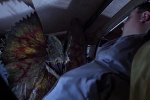Hriston
Dungeon Master of Middle-earth (He/him)
Either way, it wouldn't be following the official rules.
I don't understand. The ability to hide as a bonus action is an official rule for many creatures. Your NPC mages could be among them since they are entirely your creation.




